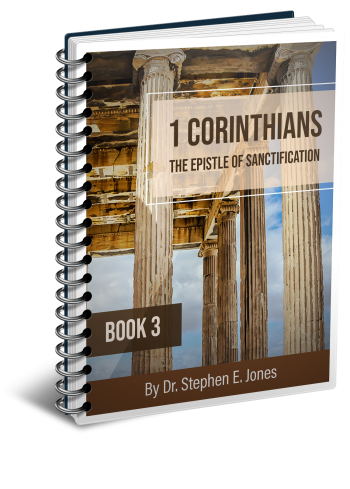Latest Posts
View the latest posts in an easy-to-read list format, with filtering options.

An in-depth commentary/study on chapters 12 and 13 of First Corinthians.
Category - Bible Commentaries

In 1 Cor. 13:7, Paul says that love “hopes all things.” The Greek word for hope is elpizo, which means “expectation, confident trust.” Our English word “hope,” as commonly used today, denotes a level of uncertainty and wishful thinking. But elpizo is confident and expectant, trusting to receive that which is promised.
Love, then, is confidence that God will fulfill His promises, even when the situation appears to be “hopeless.” Hope does not end with a sentence from the divine court upon sinners. Even in the midst of divine judgment, love expects the promises of God to be fulfilled. So Charles Erdman writes,
“But what will be the case if dark days come when one is compelled to cease trusting, when what seems the very worst has been at last made plain—what will love do then? Even in such a crisis love does not despair; if no longer it can hope for acquittal, it looks confidently and impellingly for reformation and recovery, ultimate vindication and victory. For love ‘hopeth all things’. [First Epistle of Paul to the Corinthians, p. 121]
Erdman unintentionally bears witness to the Restoration of All Things. He shows that divine judgment in the “lake of fire” does not end all hope but looks confidently beyond the sentence to “reformation and recovery, ultimate vindication and victory.” How is this possible? It is because the Restoration of All Things is based upon the New Covenant, which does not depend upon the promises or vows of men but upon the promises and vows of God alone.
The God of Love has promised, and no man can deter Him from His passionate love for all of His creatures. If we truly love and understand the love of God, we will never lose hope, regardless of our circumstances. We desire “acquittal,” or justification, but even if we fail to be justified at the Great White Throne, there is still hope for the future. The law of Jubilee, on which the promises of God are based, guarantees hope for all men.
It is only when the love of God is not fully in us that we may lose hope. But even our loss of hope does not negate the promise of God. The promise of God does not depend upon men’s will, men’s understanding, or his ability to do good. No matter how evil men become, God has taken the responsibility upon Himself to turn their hearts in the end, to be their God, and to make them His people (Deut. 29:12-15). This promise, or “oath,” is unlike the Old Covenant in Exodus 19:5-8, where the people themselves vowed obedience, which made God’s blessings conditional upon the will of men.
Apart from the knowledge and understanding of the promise of God, “hope” is limited to a few. But when we understand that God wins in the end, and that His victory is all-inclusive (as we read in Deut. 29:15), then is agape fully operative in a person’s life. So when Paul speaks of the salvation of the nations (“gentiles”), Paul writes in Rom. 15:12,
12 And again Isaiah says, “There shall come the root of Jesse, and He who arises to rule over the Gentiles, in Him shall the Gentiles hope.” [elpizo]
Paul was quoting from the Septuagint Greek translation of Isaiah 11:10. The verse preceding it is Isaiah 11:9, which says,
9 They will not hurt or destroy in all My holy mountain, for the earth will be full of the knowledge of the Lord as the waters cover the sea.
In other words, the “hope” of the nations is that God will fulfill His promise to fill the whole earth with “the knowledge of the Lord as the waters cover the sea.” Isaiah was referring to God’s promise in Num. 14:21,
21 but indeed, as I live, all the earth will be filled with the glory of the Lord.
Biblical “hope,” then, is based on the sure promises of God and not upon the good intentions expressed in the promises of men. Biblical “hope” is an expectation that God is able to fill the whole earth with His glory and that all men will have this “knowledge,” for as the New Covenant promises, “all will know Me, from the least to the greatest of them” (Heb. 8:11).